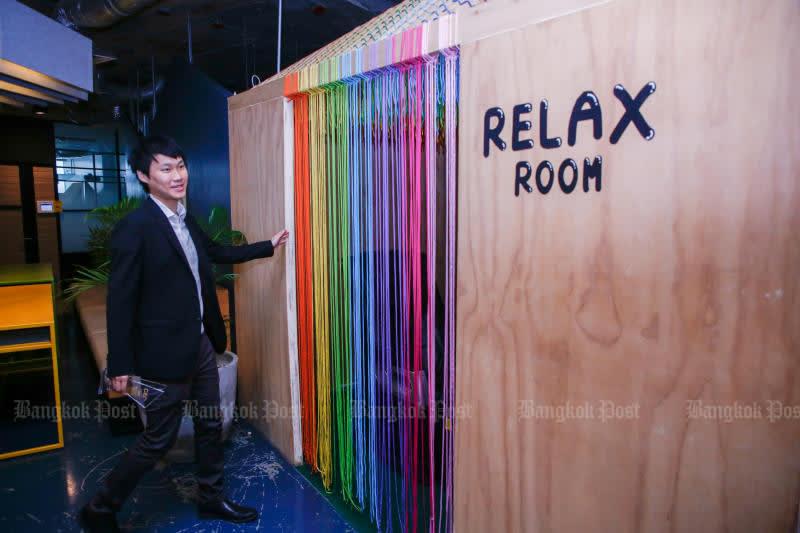A million-dollar question has been raised after President Yoon Suk Yeol named former war correspondent Lee Jin-sook as the new chairperson of the Korea Communications Commission (KCC): How long will she stay in the position? Her predecessor, Kim Hong-il, stepped down six months after he took the helm. Kim's predecessor, Lee Dong-kwan, had his tenure cut short, too. He called it quits only three months after he assumed the KCC's leadership post. They both stepped down as the main opposition Democratic Party of Korea (DPK) was about to impeach them. The DPK accused them both of being Yoon's henchmen who assumed their positions, albeit in different times, to help their boss control the media. If they had hung in there until the impeachment proceedings began, their powers would have been suspended. In this case, the KCC would have suffered the consequences. To avoid this worst-case scenario and keep the KCC doing its job, they quit. The road ahead for Yoon's newest pick is murky. The DPK, again, threatened to impeach Lee, arguing she is unfit for the position. "Her confirmation hearing will be an event through which the public will be able to fully understand who she is. We, as the DPK members, will do our best to put the brakes on the KCC chairpersons' awkward relay sprints," DPK Rep. Noh Jong-myun said in a statement on Thursday. The DPK's warning, however, is unlikely to affect Yoon's decision. Considering his previous course of actions, Yoon is expected to appoint his pick no matter what, once the parliamentary confirmation hearing is completed. Once the former MBC journalist assumes the KCC leadership post, the nation will be thrown into a political theater and the public will observe another KCC leader's tenure being cut short. The repetition of KCC leaders' doomed fate does a disservice to the nation. First and foremost, criticism about the waste of taxpayer money is unavoidable. The KCC nominee is set to answer questions from lawmakers at the confirmation hearing. Preparing and holding confirmation hear ings requires considerable time and resources as dozens of National Assembly staff and several more dozens, or maybe hundreds, of government employees are involved in the process. Frequent replacement of KCC leaders will force lawmakers to review a trove of documents and related materials to screen the candidates to find out whether they are fit for the job or not. This, in turn, will reduce their time and energy which otherwise would have been spent working on draft bills to improve the public's livelihoods. The Korean public will suffer from the consequences of partisan politics. Frequent replacement of KCC leaders could also thrust the KCC into limbo as a leadership vacuum becomes the new normal. Political leaders are tempted to tame the media in their favor. Whenever new leaders are sworn in, whether they are liberals or conservatives, they conduct reshuffles to replace top executives of the broadcasting companies. They know very well how significant a role the broadcasting media can play in shaping cit izens' way of thinking. Hence, they prefer cronyism in the media. Those who are critical of Yoon claim that he is trying to silence the media critical of his government. The Yoon government has been at odds with MBC. The two sides are caught in a legal battle about Yoon's gaffe in September 2022 in New York. In January, the district court ruled in favor of the government, ordering MBC to run corrections about the caption through which it misinterpreted Yoon's unofficial remark while reporting about the case. Lambasting the court's decision as a form of suppression of the media, MBC appealed. Those who are critical of MBC, however, say that the broadcasting company is criticizing the Yoon government for the sake of criticizing. In her acceptance speech on Thursday, Lee sharpened her tongue against the DPK and revealed her distrust toward some unnamed broadcasting companies and their militant labor unions. The nominee used a "murder weapon" analogy to pinpoint their alleged toxic role. She said some broadcas ting companies have played a murder weapon-like role, adding that plenty of the journalists working in those companies are radical unionists. Politicians usually attempt to play games to use the media in their favor. This tactic won't work out as well as planned as long as there is true journalism in place. One thing clear is that in a game launched to manipulate the media, nobody wins. There are only losers. Politicians need to sit down to reach a bipartisan agreement to keep the KCC doing its job, rather than hindering it. Source: Yonhap News Agency
Search
Recent News
- Election Commission prepares for election of MPs in Constituency 1, Phitsanulok this week.
- “MP Chatchawan” demands public utility system, vows to fully investigate
- “Suriya” declares that in September 2025, electric trains will be 20 baht for all lines.
- “Pichai” believes that the economy will recover soon, asks not to attack Chinese imports
- “Chulaphan” points out that “casinos” are just a fraction of the investment.
- Pushing ‘Entertainment Complex’ to create new money and attract investment
- The Prime Minister’s Office invites donations to help flood victims in the North.
- “Phrompong” submits a request to the Election Commission to remove “Big Pom” over the audio clip issue.
- The Prime Minister visits the temporary shelter for flood victims in Chiang Rai.
- EOD scans the Deputy Prime Minister’s room at Government House.

